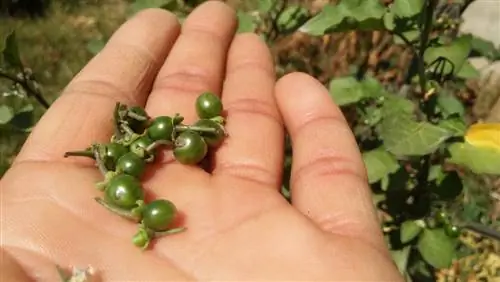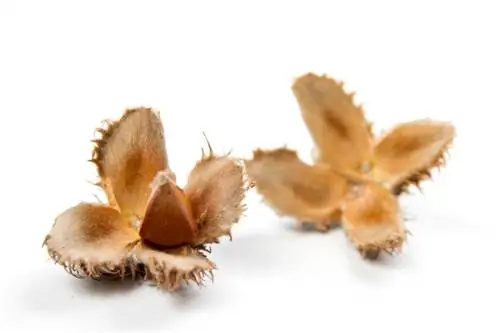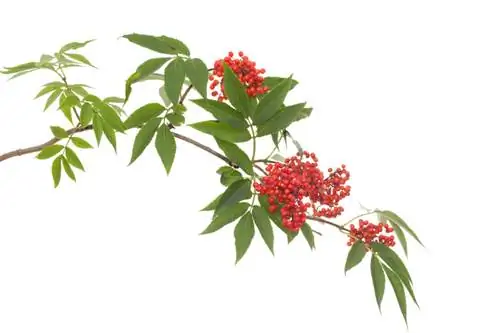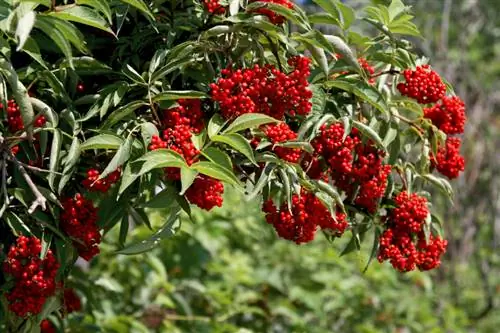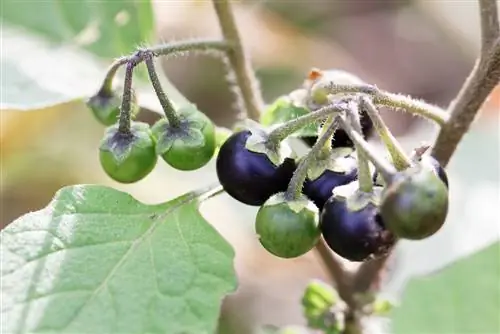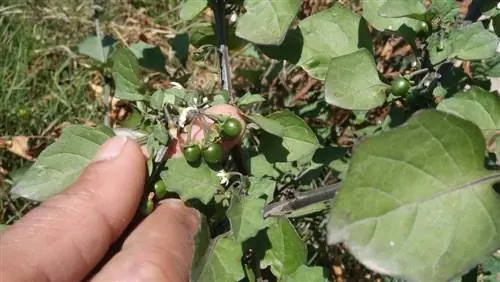- Author admin leonars@hobbygardeners.com.
- Public 2023-12-16 16:46.
- Last modified 2025-01-23 11:22.
The nightshade family includes both potatoes and tomatoes, but also poisonous plants such as deadly nightshade. The black nightshade is usually described as poisonous, but in some areas it is also considered edible.
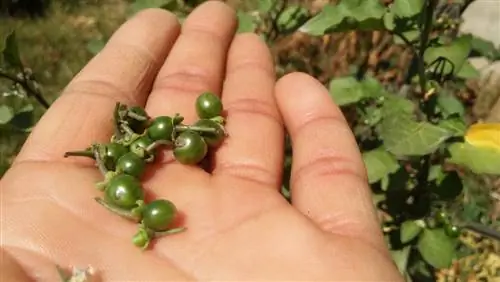
Is the black nightshade edible?
The black nightshade is considered poisonous, but the ripe berries without seeds are known to be edible in some areas. Consuming the leaves, stems, unripe berries and seeds is strongly discouraged as they contain toxic alkaloids such as solanine.
Which parts of the black nightshade are edible?
In some areas the ripe berries of the black nightshade are actually eaten and are said to be very tasty. However, the cores they contain are considered poisonous. Therefore, consumption is generally not recommended.
What substances does the black nightshade contain?
The black nightshade contains various alkaloids that are also found in other nightshade plants. One of these is the relatively well-known solanine. In addition to the alkaloids, tannins can also be found. The herb, i.e. leaves and stems, as well as the seeds and unripe berries are considered poisonous. Consumption is strongly discouraged.
What are the symptoms of poisoning?
Black nightshade poisoning causes various symptoms that can affect the digestive tract and cardiovascular system. In addition to drowsiness and anxiety, nausea, vomiting and diarrhea can occur, as well as heart failure and shortness of breath. In the worst case scenario, there is a risk of death from respiratory paralysis. The black nightshade is also very poisonous to animals, which is why it is nicknamed “chicken death”.
Where does black nightshade grow?
The black nightshade literally grows like a weed, i.e. wherever the seeds get into the ground, be it in the wild, on the edges of paths and fields or in the garden. The seeds can germinate for a very long time. There is talk of up to 40 years. Once settled, the Black Nightshade is difficult to fight.
The most important things in brief:
- ingredients included: alkaloids (solanine and others), tannins
- ripe berries without seeds may be edible
- Herb (stems and leaves), seeds and unripe berries more or less poisonous
- Symptoms of poisoning: salivation, drowsiness, vomiting, diarrhea, anxiety, red head, shortness of breath, unconsciousness, respiratory paralysis
- sometimes extremely toxic for animals
Tip
Did you know that summer jasmine (bot Solanum jasminoides) is related to the black nightshade? Both belong to the nightshade family (bot. Solanum).

